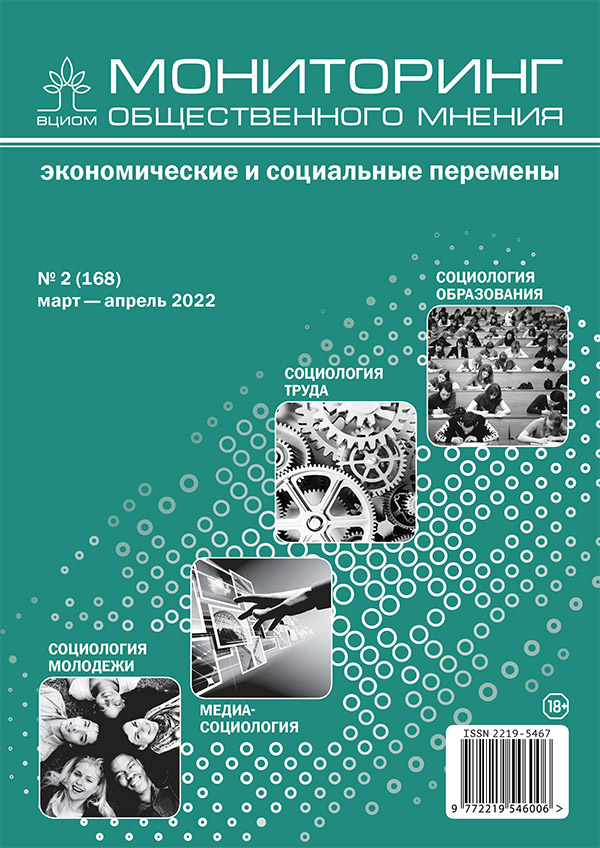Self-Confidence, Risk and Dishonesty Propensity as Determinants of Economic Behavior (On the Example of Students)
DOI:
https://doi.org/10.14515/monitoring.2022.2.1881Keywords:
behavioral economics, sociological surveys, students, personality characteristics, propensity to take risk, self-confidence, propensity to dishonest behaviorAbstract
The article analyzes the relationship between the level of self-confidence of the respondents and their risk and dishonesty propensity as determinants of their behavior in the economic sphere. The study bases on the data of the author's sociological survey of 611 full-time students of Lobachevsky State University of Nizhny Novgorod. The authors propose and test original methods for evaluation of the three named individual characteristics and study the relationship between different parameters using correlation and regression analysis.
The survey allowed to estimate the differences in characteristics across various groups of the students. Generally, the authors observe a direct relationship between self-confidence and the propensity for dishonest acts, on the one hand, and the propensity to take risks, on the other hand. Among respondents with a low level of self-esteem, the study revealed a positive relationship between self-confidence, actual level of knowledge and the propensity to take risks but did not find any relationship between self-confidence and the propensity for dishonest behavior. At the same time, in the group of respondents with a high level of self-confidence, an inverse relationship was found between the level of knowledge and self-esteem, as well as a direct triple relationship between self-confidence, the propensity to take risks and the propensity for dishonest behavior. The econometric modelling showed that the risks and dishonesty propensity are more pronounced among male students compared to female, and among those studying humanities compared to natural science students. Age influences the propensity for informal practices only in the group of more mature respondents with relatively high self-esteem. The research results can be applied in further studies focused on the relationships of personal characteristics determining features of economic behavior or in various types of information and educational work aimed at developing the skills of effective economic behavior among young people.
Acknowledgements. The study was carried out within the framework of the basic part of the state assignment of the Ministry of Education and Science of the Russian Federation, project 0729-2020-0056 “Modern methods and models for diagnosing, monitoring, preventing, and overcoming crisis phenomena in the economy in the context of digitalization as a way to ensure the economic security of the Russian Federation”.
Downloads
Published
How to Cite
Issue
Section
License
Copyright (c) 2022 Monitoring of Public Opinion: Economic and Social Changes Journal (Public Opinion Monitoring) ISSN 2219-5467

This work is licensed under a Creative Commons Attribution-NonCommercial-ShareAlike 4.0 International License.






